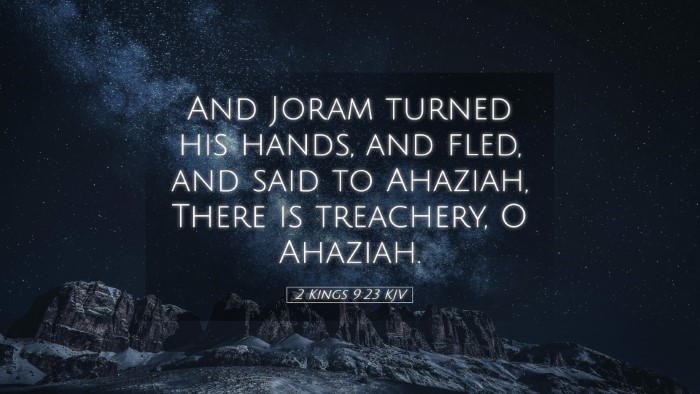Old Testament
Genesis Exodus Leviticus Numbers Deuteronomy Joshua Judges Ruth 1 Samuel 2 Samuel 1 Kings 2 Kings 1 Chronicles 2 Chronicles Ezra Nehemiah Esther Job Psalms Proverbs Ecclesiastes Song of Solomon Isaiah Jeremiah Lamentations Ezekiel Daniel Hosea Joel Amos Obadiah Jonah Micah Nahum Habakkuk Zephaniah Haggai Zechariah MalachiVerse
2 Kings 9:1 2 Kings 9:2 2 Kings 9:3 2 Kings 9:4 2 Kings 9:5 2 Kings 9:6 2 Kings 9:7 2 Kings 9:8 2 Kings 9:9 2 Kings 9:10 2 Kings 9:11 2 Kings 9:12 2 Kings 9:13 2 Kings 9:14 2 Kings 9:15 2 Kings 9:16 2 Kings 9:17 2 Kings 9:18 2 Kings 9:19 2 Kings 9:20 2 Kings 9:21 2 Kings 9:22 2 Kings 9:23 2 Kings 9:24 2 Kings 9:25 2 Kings 9:26 2 Kings 9:27 2 Kings 9:28 2 Kings 9:29 2 Kings 9:30 2 Kings 9:31 2 Kings 9:32 2 Kings 9:33 2 Kings 9:34 2 Kings 9:35 2 Kings 9:36 2 Kings 9:37

